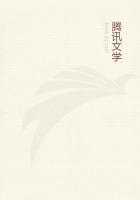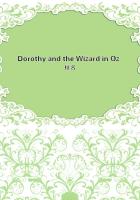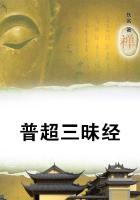For, if they profess to know how to bring down the moon, darken the sun, induce storms and fine weather, and rains and droughts, and make the sea and land unproductive, and so forth, whether they arrogate this power as being derived from mysteries or any other knowledge or consideration, they appear to me to practice impiety, and either to fancy that there are no gods, or, if there are, that they have no ability to ward off any of the greatest evils. How, then, are they not enemies to the gods? For if a man by magical arts and sacrifices will bring down the moon, and darken the sun, and induce storms, or fine weather, I should not believe that there was anything divine, but human, in these things, provided the power of the divine were overpowered by human knowledge and subjected to it. But perhaps it will be said, these things are not so, but, not withstanding, men being in want of the means of life, invent many and various things, and devise many contrivances for all other things, and for this disease, in every phase of the disease, assigning the cause to a god. Nor do they remember the same things once, but frequently. For, if they imitate a goat, or grind their teeth, or if their right side be convulsed, they say that the mother of the gods is the cause. But if they speak in a sharper and more intense tone, they resemble this state to a horse, and say that Poseidon is the cause. Or if any excrement be passed, which is often the case, owing to the violence of the disease, the appellation of Enodia is adhibited; or, if it be passed in smaller and denser masses, like bird's, it is said to be from Apollo Nomius. But if foam be emitted by the mouth, and the patient kick with his feet, Ares then gets the blame. But terrors which happen during the night, and fevers, and delirium, and jumpings out of bed, and frightful apparitions, and fleeing away,-all these they hold to be the plots of Hecate, and the invasions the and use purifications and incantations, and, as appears to me, make the divinity to be most wicked and most impious.
For they purify those laboring under this disease, with the same sorts of blood and the other means that are used in the case of those who are stained with crimes, and of malefactors, or who have been enchanted by men, or who have done any wicked act; who ought to do the very reverse, namely, sacrifice and pray, and, bringing gifts to the temples, supplicate the gods. But now they do none of these things, but purify; and some of the purifications they conceal in the earth, and some they throw into the sea, and some they carry to the mountains where no one can touch or tread upon them. But these they ought to take to the temples and present to the god, if a god be the cause of the disease. Neither truly do I count it a worthy opinion to hold that the body of man is polluted by god, the most impure by the most holy; for were it defiled, or did it suffer from any other thing, it would be like to be purified and sanctified rather than polluted by god. For it is the divinity which purifies and sanctifies the greatest of offenses and the most wicked, and which proves our protection from them. And we mark out the boundaries of the temples and the groves of the gods, so that no one may pass them unless he be pure, and when we enter them we are sprinkled with holy water, not as being polluted, but as laying aside any other pollution which we formerly had. And thus it appears to me to hold, with regard to purifications.
But this disease seems to me to be no more divine than others; but it has its nature such as other diseases have, and a cause whence it originates, and its nature and cause are divine only just as much as all others are, and it is curable no less than the others, unless when, the from of time, it is confirmed, and has became stronger than the remedies applied. Its origin is hereditary, like that of other diseases. For if a phlegmatic person be born of a phlegmatic, and a bilious of a bilious, and a phthisical of a phthisical, and one having spleen disease, of another having disease of the spleen, what is to hinder it from happening that where the father and mother were subject to this disease, certain of their offspring should be so affected also? As the semen comes from all parts of the body, healthy particles will come from healthy parts, and unhealthy from unhealthy parts. And another great proof that it is in nothing more divine than other diseases is, that it occurs in those who are of a phlegmatic constitution, but does not attack the bilious. Yet, if it were more divine than the others, this disease ought to befall all alike, and make no distinction between the bilious and phlegmatic.
But the brain is the cause of this affection, as it is of other very great diseases, and in what manner and from what cause it is formed, Iwill now plainly declare. The brain of man, as in all other animals, is double, and a thin membrane divides it through the middle, and therefore the pain is not always in the same part of the head; for sometimes it is situated on either side, and sometimes the whole is affected; and veins run toward it from all parts of the body, many of which are small, but two are thick, the one from the liver, and the other from the spleen. And it is thus with regard to the one from the liver: a portion of it runs downward through the parts on the side, near the kidneys and the psoas muscles, to the inner part of the thigh, and extends to the foot. It is called vena cava. The other runs upward by the right veins and the lungs, and divides into branches for the heart and the right arm. The remaining part of it rises upward across the clavicle to the right side of the neck, and is superficial so as to be seen; near the ear it is concealed, and there it divides; its thickest, largest, and most hollow part ends in the brain; another small vein goes to the right ear, another to the right eye, and another to the nostril. Such are the distributions of the hepatic vein. And a vein from the spleen is distributed on the left side, upward and downward, like that from the liver, but more slender and feeble.















